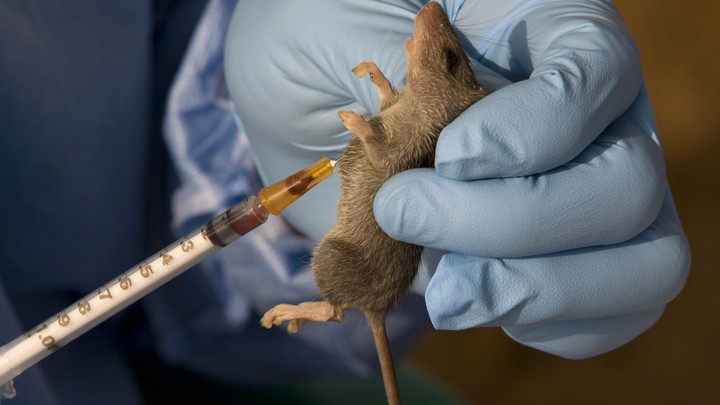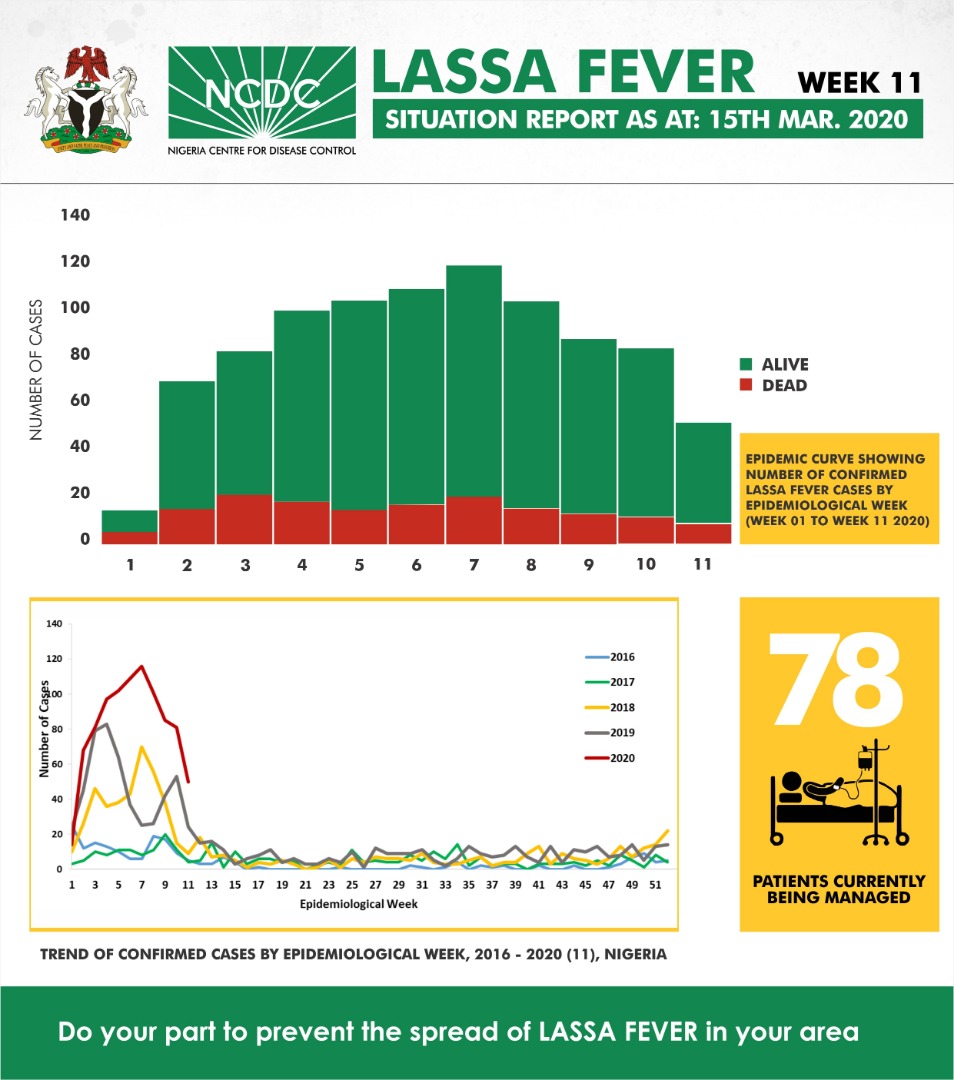News
Lassa Fever Outbreak is Still a Major cause for Concern in Nigeria | Here’s what’s Happening

Since the detection of coronavirus in Nigeria, concerns about the country’s ability to handle the pandemic have been raised, but so far state governments have been handling the outbreak quite well. But the coronavirus is not the only viral outbreak that we should be worried about.
Nigeria is currently dealing with what is turning out to be the world’s largest epidemic of Lassa fever, a viral disease that could be deadlier than coronavirus. Lassa fever is a severe viral hemorrhagic fever (VHF) like Ebola that occurs throughout the year in Nigeria and was declared an active outbreak by the Nigeria Centre for Disease Control (NCDC), earlier this year.
The Lassa fever virus is transmitted to humans through contact with food or household items contaminated with urine and feces of a rat. It’s also known to spread from person-to-person through contact with the body fluids and organs of infected persons, which has resulted in healthcare workers easily getting infected.
The epidemic, whose rapid escalation started right from the second week of the year, currently has 906 cases and 161 deaths spread across various states including the federal capital territory.
Before the emergence of the new coronavirus, the NCDC has been focused mainly on Lassa fever. However, with new and potentially more cases of coronavirus in Nigeria, the NCDC has focused its online publicity on the coronavirus epidemic despite the reports of an unprecedented Lassa fever epidemic in the country.
On Wednesday, the Bauchi State Surveillance Support Officer, Suleiman Lawal, disclosed that no fewer than 16 people have died of Lassa fever disease, out of a total of 43 confirmed cases that were recorded in Bauchi state this year and two of the deaths were health workers.
Bauchi state has recorded 43 confirmed cases of Lassa fever but two out of this number were brought in from Plateau State. Among these confirmed cases, 16 deaths were recorded this year.
According to Guardian, Suleiman disclosed that, “There are also three people that have died of probable cases. They are called ‘probable cases’ because we couldn’t take their samples before they died.
“Totally, we have seven health workers that were affected. One of the doctors who was pregnant and had the disease, we managed her and discharged her. Four others are currently on admission, we’ve been managing them. They are now stable, in fact, we will discharge two of them today because they have finished their 10 day treatment period.

























